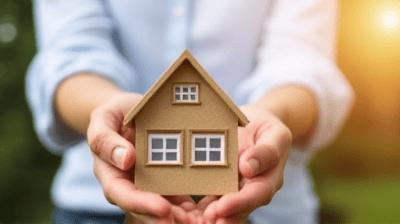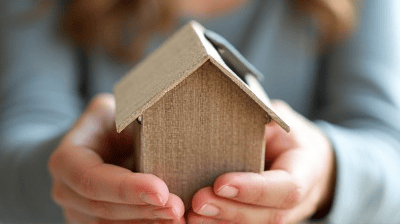Buying a home is one of the most significant financial decisions many people will make in their lives. While first-time buyers often focus on the sale price, mortgage payments, and property taxes, there are numerous hidden costs associated with homeownership that could substantially impact their finances. Understanding these costs is crucial for making informed decisions and ensuring that you are financially prepared for homeownership.

Introduction to Homeownership Costs
The Importance of Comprehensive Financial Planning
When considering homeownership, it is vital to have a holistic view of the total cost of buying and maintaining a home. While estimating the monthly mortgage payments is essential, many first-time buyers overlook other expenses that can accumulate over time. These hidden costs can strain budgets and lead to financial hardships if not anticipated.
Setting Realistic Expectations
By understanding the full spectrum of homeownership costs, buyers can set realistic expectations and make informed choices. This knowledge not only prepares you for the financial responsibilities of owning a home but also helps you avoid unpleasant surprises.
1. Upfront Costs of Buying a Home
Down Payment
One of the most significant upfront costs associated with buying a home is the down payment. This payment is typically a percentage of the home's purchase price and is required by lenders to secure the mortgage.
Common Down Payment Amounts
- Conventional Loans: Generally require a down payment of 20 percent, although some lenders allow as little as 3 to 5 percent for qualified buyers.
- FHA Loans: Require as little as 3.5 percent down for first-time buyers with lower credit scores.
- VA and USDA Loans: These government-backed loans often require no down payment, making them attractive to eligible buyers.
Closing Costs
Closing costs are additional fees that come with finalizing the purchase of a home and can range from 2 to 5 percent of the purchase price. These fees include various expenses such as:
- Loan Origination Fees: Charged by lenders for processing the mortgage application.
- Title Insurance: Protects against potential defects in the property title.
- Appraisal Fees: Paid to have the property appraised to determine its fair market value.
- Credit Report Fees: Charges for the lender to obtain your credit report.
- Inspections: Fees for various inspections, such as home and pest inspections, which can help identify potential issues.
Prepaid Expenses
In addition to closing costs, buyers will be required to prepay certain expenses, including:
- Property Taxes: Lenders sometimes require the first year's property taxes to be paid upfront.
- Homeowners Insurance: Many lenders require the first year's premium to be prepaid at closing, in addition to setting up an escrow account for future premiums.
2. Ongoing Homeownership Costs
Mortgage Payments
While mortgage payments are often well understood, buyers should recognize the other financial obligations that accompany them.
Principal and Interest
The monthly payment primarily consists of principal and interest, which varies based on the loan amount, interest rate, and loan term.
Property Taxes
Property taxes are assessed by local governments and vary by location. Buyers should research current rates and consider how property taxes may increase over time based on local policies and developments.
Homeowners Insurance
Homeowners insurance protects your home and possessions from unforeseen events such as theft, fire, or natural disasters. The cost of homeowners insurance varies based on factors like:
- Location: Areas prone to natural disasters may have higher premiums.
- Home Value: The more valuable the home, the higher the insurance premium.
- Coverage Amount: Choose a policy that covers the full replacement cost of your home and its contents.
Private Mortgage Insurance
If a buyer makes a down payment of less than 20 percent, mortgage lenders typically require private mortgage insurance (PMI). PMI protects the lender in case the borrower defaults on the loan, and the cost can add hundreds of dollars to your monthly payment.
Home Maintenance and Repairs
As a homeowner, maintenance and repairs are inevitable. Budgeting for home maintenance is essential to avoid financial strain.
Common Maintenance Costs
- Routine Maintenance: Regular upkeep such as HVAC servicing, gutter cleaning, and lawn care.
- Repairs: Unexpected repairs for issues like plumbing leaks, electrical problems, or roof damage.
- Upgrades: Investing in home improvements to enhance property value or efficiency.
Homeowners Association Fees
If your home is part of a homeowners association (HOA), you will likely be responsible for monthly or annual fees. These fees can cover community amenities, landscaping, and maintenance of common areas.
Understanding HOA Fees
- Varying Costs: HOA fees can range from moderate to substantial, depending on the community and the services provided.
- Budget Accordingly: Understand the fees upfront and ensure they fit within your monthly budget.
Utilities
Monthly utility bills are an ongoing cost of homeownership. Utility expenses can fluctuate seasonally and include:
- Electricity: Costs can vary based on usage, climate, and energy efficiency of the home.
- Water and Sewer: Charges for water consumption and wastewater disposal.
- Natural Gas: Costs associated with heating, cooking, or hot water, if applicable.
- Internet and Cable: Essential services that contribute to your monthly expenses.

3. Long-Term Costs of Homeownership
Property Value Appreciation
While homeownership can be a valuable investment, potential buyers should recognize that property values can fluctuate. Economic conditions, neighborhood developments, and market trends can impact the future value of your home.
Selling Costs
If you decide to sell your home in the future, be aware of the costs associated with selling.
Common Selling Costs
- Real Estate Agent Commissions: Agents typically charge around 5 to 6 percent of the sale price for their services.
- Closing Costs: Similar to the costs incurred when buying, sellers may also pay closing costs during a sale.
- Pre-Sale Repairs: Investing in minor repairs or improvements can increase the appeal of your home to potential buyers.
Capital Gains Tax
If you sell your home for a profit, you may be subject to capital gains tax. Understand the tax implications of selling your home, particularly if you do not qualify for an exemption.
4. Preparing for the Unexpected
Emergency Fund
Having an adequate emergency fund is crucial for homeowners. Ideally, this fund should cover three to six months of expenses, including your mortgage payment, utilities, and maintenance costs.
Natural Disasters and Climate Risks
Depending on where you live, your home may be at risk from natural disasters such as floods, earthquakes, and hurricanes. Assess the potential risks and consider additional insurance or mitigation measures to protect your investment.
5. Financial Resources and Support
Homebuyer Education Programs
Many organizations offer homebuyer education programs to help first-time buyers understand the costs and responsibilities of homeownership. These programs can provide invaluable resources and information.
Government Assistance Programs
Explore local and federal programs that provide financial assistance and incentives for first-time homebuyers, such as down payment assistance loans or grants.
Conclusion
The journey to homeownership is exciting but comes with significant financial responsibilities. First-time buyers must go beyond the purchase price and mortgage payment to consider the hidden costs of homeownership. By understanding the upfront, ongoing, and long-term expenses associated with owning a home, buyers can make informed decisions and set realistic budgets.
Proper financial planning and thorough research can help new homeowners prepare for the responsibilities that come with this significant investment. With careful budgeting, awareness of costs, and a commitment to ongoing maintenance, you can enjoy the benefits of homeownership while safeguarding your financial future.
This knowledge enables you to navigate the complex landscape of homeownership and make choices that align with your financial goals. With the right preparation and resources, your dream of homeownership can become a reality without compromising your financial well-being.



